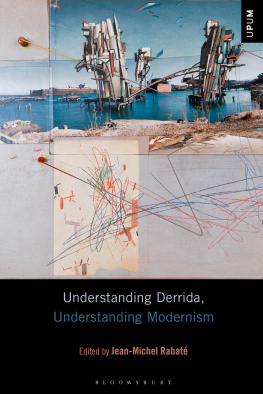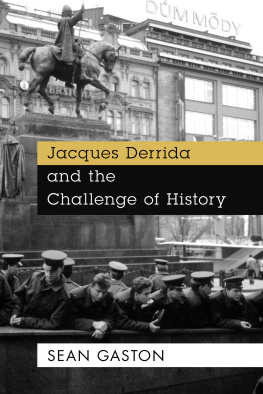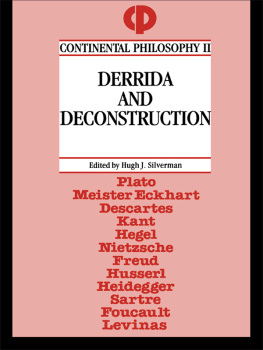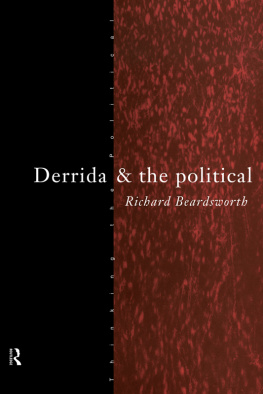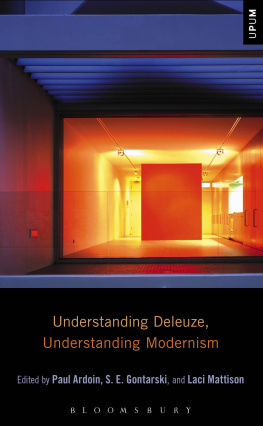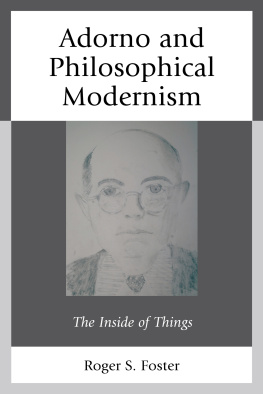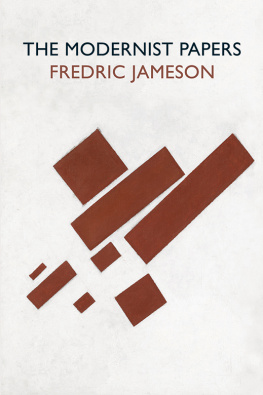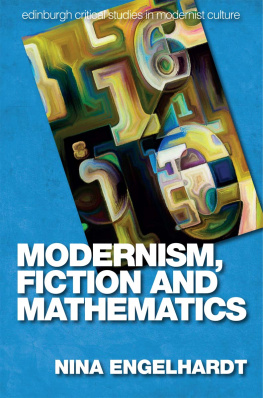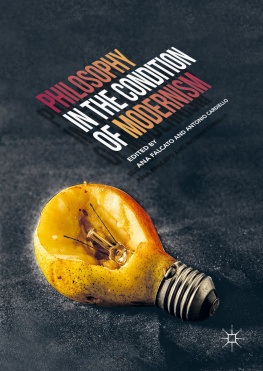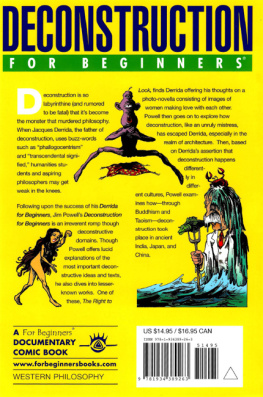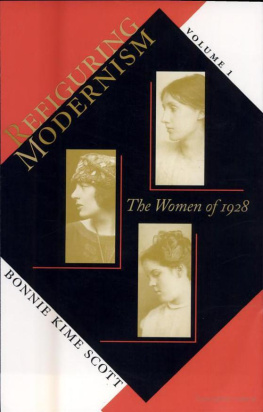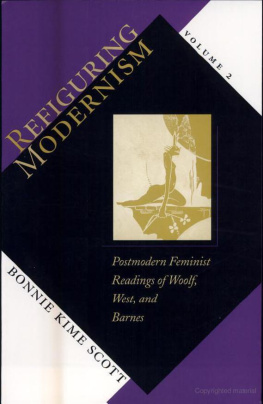Understanding Derrida, Understanding Modernism
Understanding Philosophy, Understanding Modernism
The aim of each volume in Understanding Philosophy, Understanding Modernism is to understand a philosophical thinker more fully through literary and cultural modernism and consequently to understand literary modernism better through a key philosophical figure. In this way, the series also rethinks the limits of modernism, calling attention to lacunae in modernist studies and sometimes in the philosophical work under examination.
Series Editors
Paul Ardoin, S. E. Gontarski, and Laci Mattison
Volumes in the Series
Understanding Bergson, Understanding Modernism , edited by Paul Ardoin, S. E. Gontarski, and Laci Mattison
Understanding Deleuze, Understanding Modernism , edited by S. E. Gontarski, Paul Ardoin and Laci Mattison
Understanding Wittgenstein, Understanding Modernism , edited by Anat Matar
Understanding Foucault, Understanding Modernism , edited by David Scott
Understanding James, Understanding Modernism , edited by David H. Evans
Understanding Rancire, Understanding Modernism , edited by Patrick M. Bray
Understanding Blanchot, Understanding Modernism , edited by Christopher Langlois
Understanding Merleau-Ponty, Understanding Modernism , edited by Ariane Mildenberg
Understanding Nietzsche, Understanding Modernism , edited by Douglas Burnham and Brian Pines
Understanding Derrida, Understanding Modernism , edited by Jean-Michel Rabat
Understanding Adorno, Understanding Modernism (forthcoming), edited by Robin Truth Goodman
Understanding Cavell, Understanding Modernism (forthcoming), edited by Paola Marrati
Understanding Flusser, Understanding Modernism (forthcoming), edited by Aaron Jaffe, Rodrigo Martini, and Michael F. Miller
Understanding Marx, Understanding Modernism (forthcoming), edited by Mark Steven
Understanding Derrida, Understanding Modernism
Edited by Jean-Michel Rabat

Contents
I would like to thank my friend Aleksandra Wagner, who kindly facilitated the production of the book cover. All my gratitude goes to Stanley Gontarski who has asked me, more than once, to edit such a volumehe has been a mentor all these years. I am grateful to Laurent Milesi who has re-read the entries in the Glossary and made a number of excellent suggestions. Finally, I want to say how pleasant it has been to work with an editor who is as friendly, astute and understanding as Haaris Naqvi.
J.-M. R
Understanding Philosophy,
Understanding Modernism
Sometime in the late twentieth century, modernism, like philosophy itself, underwent something of an unmooring from (at least) linear literary history in favor of the multi-perspectival history implicit in new historicism or, say, varieties of presentism. Amid current reassessments of modernism and modernity, critics have posited various new or alternative modernismspostcolonial, cosmopolitan, transatlantic, transnational, geomodernism, or even bad modernisms. In doing so, they have not only reassessed modernism as a category, but also, more broadly, rethought epistemology and ontology, aesthetics, metaphysics, materialism, history, and being itself, opening possibilities of rethinking not only which texts we read as modernist, but also how we read those texts. Much of this new conversation constitutes something of a critique of the periodization of modernism or modernist studies in favor of modernism as mode (or mode of production) or concept. Understanding Philosophy, Understanding Modernism situates itself amid the plurality of discourses, offering collections focused on key philosophical thinkers influential both to the moment of modernism and to our current understanding of that moments geneology, archeology, and becomings. Such critiques of modernism(s) and modernity afford opportunities to rethink and reassess the overlaps, folds, interrelationships, interleavings, or cross-pollinations of modernism and philosophy. Our goal in each volume of the series is to understand literary modernism better through philosophy as we also better understand a philosopher through literary modernism. The first two volumes of the series, those on Henri Bergson and Gilles Deleuze, have established a tripartite structure that serves to offer accessibility to both philosophers principle texts and current new research. Each volume opens with a section focused on conceptualizing the philosopher through close readings of seminal texts in the thinkers oeuvre. A second section, on aesthetics, maps connections between modernist works and the philosophical figure, often surveying key modernist trends and shedding new light on authors and texts. The final section of each volume serves as an extended glossary of principal terms in the philosophers work, each treated at length, allowing a fuller engagement with and examination of the many, sometimes contradictory ways terms are deployed. The series is thus designed both to introduce philosophers and to rethink their relationship to modernist studies, revising our understandings of both modernism and philosophy, and offering resources that will be of use across disciplines, from philosophy, theory, and literature, to religion, the visual and performing arts, and often to the sciences as well.
Alhel Alvarado-Daz is a historian teaching political theory at Columbia University and NYU. She has written Shooting the Core: Reinterpreting Political Theory through Film, Documentary and Reportage and is completing Disruptive Irrational: Desire and Repression in Antonin Artaud, Flix Guattari and Jean-Franois Lyotard , and Tragic Democracy: Thinking Politics with Cornelius Castoriadis.
Mark Byron is Associate Professor in the Department of English at the University of Sydney and an Australian Research Council Future Fellow. His current work is in developing digital scholarly editions of complex modernist texts and their manuscripts, including the Watt module of the Samuel Beckett Digital Manuscript Project. Another project, Modernism and the Early Middle Ages, has thus far produced the monograph Ezra Pounds Eriugena (2014) and a dossier Samuel Beckett and the Middle Ages coedited with Stefano Rosignoli in the Journal of Beckett Studies (2016).
Robert Doran , Professor of French and Comparative Literature at the University of Rochester, is the author of The Theory of the Sublime from Longinus to Kant (2015) and The Ethics of Theory: Philosophy, History, Literature (2017). He has edited collections of texts such as Mimesis and Theory (2008) by Ren Girard, The Fiction of Narrative (2010) by Hayden White, the anthology Philosophy of History After Hayden White (2013), and special journal issues Cultural Theory after 9/11: Terror, Religion, Media (2008) and Rethinking Claude Lvi-Strauss: 1908-2009 (2013).
Jennifer Anna Gosetti-Ferencei is Kurrelmeyer Professor of German at the Johns Hopkins University. Her books include The Life of Imagination: Revealing and Making the World ; Exotic Spaces in German Modernism ; The Ecstatic Quotidian: Phenomenological Sightings in Modern Art and Literature ; Heidegger, Hlderlin, and the Subject of Poetic Language ; and a book of poetry, After the Palace Burns , which won The Paris Review Prize.
Marit Grtta is Associate Professor of Comparative Literature at the University of Oslo, Norway. She has published Litterre bagateller: Introduksjon til litteraturens korttekster (2009) and Baudelaires Media Aesthetics: The Gaze of the Flneur and 19th-Century Media (2015), as well as articles on Schlegel, Baudelaire, Proust, Benjamin, and Agamben.

